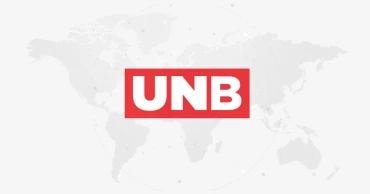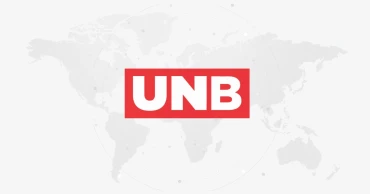Electricity price
Power tariff hike from February 1, not March 1
Power tariff will be increased from February 1 instead of March 1, said State Minister for Power, Energy and Mineral Resources Nasrul Hamid on Thursday (February 29, 2024).
Gazette notification will be issued today in regard to the power tariff adjustment, he said while briefing reporters at his ministry.
Earlier he said the new tariff will come into effect from March 1.
He said the power tariff will be hiked between Tk 0.34 and Tk 0.70 per unit for all kinds of consumers depending on their volume of consumption while gas price will go up by Tk 0.75 per unit only for power plants.
Govt raises gas prices for power plants by Tk 0.75 per unit
He also said that a dynamic fuel pricing will be introduced for the consumers from March 1 under which price of petroleum fuel will go up and down in line with international market price.
“Each month fuel price will be declared for the consumers”, he said adding neighbouring India do this every day.
He noted that the steps have been taken to minimise the government losses caused by the increase in dollar rate. “This year the government will incur loss of Tk 43,000 crore due to sale of electricity at lower price,” he said.
This step has been taken as part of the government move to come out of the subsidy now being given to the power sector, said the minister.
According to the BPDB’s Annual Report 2022-23, the fiscal year saw the production of 87,024 million kilowatt hours of electricity at a total cost of TK 98,646 crore.
Its per unit production cost was Tk 11.33, while it was selling electricity at Tk 6.7 per unit — incurring a loss of about Tk 4.63 per unit.
Electricity price to go up from March 1: Nasrul
This imbalance has led to a staggering loss of Tk 47,788 crore for the fiscal year, as the government grapples with purchasing power from private and international sources at significantly higher rates.
With this huge loss, the government has been facing great trouble as it has to purchase electricity worth Tk 82,778 crore from private sector power producers, while it generates electricity worth Tk 13,307 crore from its own generation plants.
The annual report also shows that the BPDB’s average per unit production cost from its own plants is Tk 7.63, while it is Tk 14.62 at the independent power producers or IPPs (private sector), at rental plants Tk 12.53, at public plants Tk 6.85, and imported power from India at Tk 8.77.
The government purchases electricity from the private sector and India in dollars.
Read more: Bangladesh seeks ITFC cooperation to modernise power distribution, transmission system
2 years ago
Electricity price to remain unchanged for now
Bangladesh Energy Regulatory Commission (BERC) has rejected state-owned Bangladesh Power Development Board’s (BPDB) proposal to raise bulk power tariff.
“The current charges will remain unchanged for now,” State Minister for Power, Energy and Mineral Resources Nasrul Hamid told UNB today.
“BPDB’s proposal has not been accepted,” BERC chairman Abdul Jalil said while announcing the decision of the commission today.
He, however, said if any party feels aggrieved, they can apply for re-consideration of the decision within 30 days.
Read: Decision on bulk power tariff ‘adjustment’ Thursday
He noted that some of the private companies which buy power from BPDB have not submitted their data of transactions.
“There was data ambiguity. That’s why we did not analyse the impact of any rise in bulk tariff on the consumers,” he told reporters during the virtual meeting.
The current socio-economic and power supply situation were taken into consideration when making the BERC decision, he noted.
The last BERC decision, in February 2020, shall prevail, said the BERC chairman adding that no further tariff will be introduced and the previous tariff will be continued.
Read National power grid failure: Blackout across Bangladesh
He also said that BPDB has received a subsidy of Tk 17,000 crore from the government. So, it will be no problem for BPDB to adjust its cost.
The last public hearing on a proposal of the state-owned Bangladesh Power Development Board to raise bulk power tariff was held on May 18.
BERC extended the time for stakeholders to submit relevant documents for ending the hearing procedures.
From that additional time, BERC counted 90 days and set October 13 to announce its decision.
Read Focus more on generating electricity from renewable sources
The energy regulator's decision to reject the proposal to raise bulk power tariff came at a time when the country has been experiencing a nagging power crisis and consumers are suffering 5-6 hours of load shedding daily.
The Power Division has been under tremendous pressure from the Finance Ministry to raise power tariffs.
BPDB has been incurring a huge financial loss due to its purchase of electricity from private power plants at a much higher rate and sell it to the consumers at a lower rate.
Against this backdrop, BPDB placed a proposal to raise bulk power tariffs by 65.57 percent at the public hearing while a technical evaluation committee (TEC) of BERC recommended a 57.83 percent hike.
Read Bangladesh produces 14,001MW of electricity: A new record
The 5-member commission makes the final decision following a public hearing after listening to arguments and counter arguments from the stakeholders on any proposal.
At the public hearing on May 18, consumer rights groups, including representatives from different business bodies, vehemently opposed any major rise in power tariff right now, as people are already struggling with high inflation caused by high commodity prices.
They termed the proposal illogical and said BPDB can offset its revenue deficit through addressing irregularities, corruption and unethical practice in buying electricity from inefficient private power plants at higher rates.
Placing the proposal, BPDB officials had said the organisation will require revenue of Tk 74,189 crore to generate 88,993 million kilowatt hours (units) of electricity to supply to the power distribution companies.
Read Despite lower electricity demand on weekend, Dhaka ...
"But if the BPDB sells its electricity at the existing rate of Tk 5.17 per unit, it will have to face a deficit of Tk 30,251 crore in revenue in the calendar year 2022. So, BPDB needs to raise the power tariff by 65.57 percent to Tk 8.56 per unit from Tk 5.17," said a BPDB top official at the hearing, adding that this has been calculated without the government's subsidy.
The Power Division suspended operation of its diesel-fired power plants and also import of liquefied natural gas (LNG) following escalation of fuel prices in the international market as fallout of the Russia-Ukraine war.
As a result, though the country's installed power generation capacity is about 25,50 MW, it now generates about 12,000 MW against a demand for around 14,000 MW and resorts to a load shedding of about 2,000 MW.
Read Bulk power tariff hike in Bangladesh could be announced within Oct 14, 2022
3 years ago



